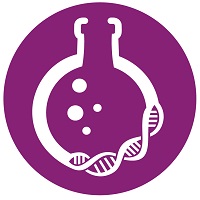Bioanalytics
Challenges in Critical Reagents and ADA Assays for Cell Therapy
Wednesday, October 23, 2024
3:30 PM - 3:45 PM MT
Location: 151 ABCG

Kun Yang, PhD
Senior Principal Scientist
Bristol Myers Squibb
Princeton, New Jersey
Rapid Fire Speaker(s)
The advancement of clinical cell therapies necessitates robust bioanalytical support, particularly in the generation of critical reagents and the development of anti-drug antibody (ADA) assays. In therapies based on monoclonal antibodies, the biotin and sulfo-tag labeled drug products can be used as capture and detection reagents to monitor ADAs. However, it is not feasible to use whole chimeric antigen receptor (CAR) T cells as capture and detection reagents on MSD plates in cell therapy. The prevailing method involves utilizing only the recombinant extracellular domain (ECD) of the CAR. In some cases, expressing and purifying the ECD as a recombinant protein is problematic due to its tendency to aggregate in solution, as it is not in its natural form. In this presentation, we will explore strategies to overcome these challenges and share ADA method validation data using one of such reagents, to support a CAR T cell therapy study.
Learning Objectives:
- Upon completion, participants will gain an understanding of strategies to overcome challenges associated with critical reagent generation and ADA method development, thereby supporting CAR T cell therapy clinical studies.
- Upon completion, participants will gain an understanding of strategies to overcome challenges associated with critical reagent generation and ADA method development, thereby supporting CAR T cell therapy clinical studies.
- Upon completion, participants will gain an understanding of strategies to overcome challenges associated with critical reagent generation and ADA method development, thereby supporting CAR T cell therapy clinical studies.


